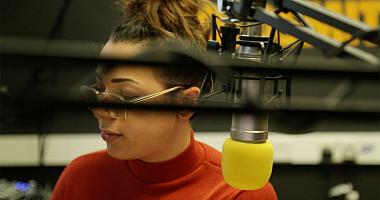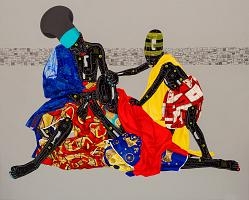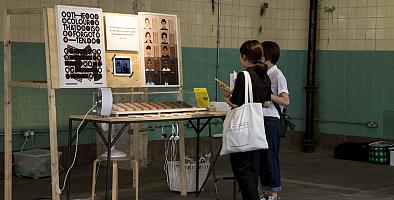Having celebrated its 35th anniversary in 2013, Goldsmiths’ Department of Media, Communications and Cultural Studies is one of the oldest and largest media departments in the UK. It is also unique in its diversity of approaches to, and articulations of, the disciplinary conjunctures around media and culture.
The department has equal research strengths in media and communications and in cultural studies research, in humanities and in social sciences approaches, and in theory- and practice-driven work. Its work spans a wide range of topics and modes of enquiry – from philosophical studies of technology and human life to sociological investigations of media production and use; from issues of identity, embodiment and becoming to post-feminism, queer theory and critical race studies; from global screen studies and transnational investigations of media and culture to news’ role in contemporary democracy.
The Department’s research falls into five main strands which make up our research groupings:
(1) Media and Democracy: building on the work of the Leverhulme programme on the media’s contribution to democracy, including the changing nature of journalism and political communication; studying globalisation in relation to issues of diaspora and nationhood
(2) Economy, Culture and Communication: investigating communication and discourse in finance and financial media; everyday representations and understandings of the economy and economic life; creative labour, neoliberalism and organisational practices in the arts and cultural industries; the impact of the promotional professions (branding, PR, marketing) on the economy, culture and society
(3) Media Futures: bringing together humanities and social sciences approaches to understanding the changing role of media technologies and global media flows in society, economy and science
(4) Gender, Feminism and Contemporary Cultures: connecting the long tradition of work within the Department on culture, representation, embodiment and affect to its specific strengths in gender, race, sexuality and labour in national and international contexts
(5) Screen Cultures and Media Arts: consolidating the long-standing focus on screen cultures within the Department, as concentrated within the Leverhulme programme, combined with an exploration of media arts such as photography, video, digital imagining, sound and performance.
Many of the projects undertaken within the Department are collaborative in nature - such as the work conducted under the umbrella of Goldsmiths Leverhulme Media Research Centre, funded with a 2006 Leverhulme grant to study the design and significance of various contemporary media spaces. Members of the Department have also received funding from AHRC, British Academy, British Council, Carnegie Trust UK, Council for British Research in the Levant, ESRC, EPSRC, Guggenheim Foundation, Higher Education Academy, Hong Kong Research Grants Council, JISC, London Centre for Arts and Cultural Exchange, Media Trust and Open Society Foundation.
As well as working on collaborative projects, members of the Department have published many books with high-impact international presses, on a diverse range of topics: affect and emotion, artificial intelligence, bioethics, the body and experience, branding, broadcasting, democracy, film history, the future of journalism, media geographies, the mediation of power, post-feminism, postcolonial politics, sound and video cultures.
Members of the Department edit leading academic journals, including Body and Society, Culture Machine and its sister project, Photomediations Machine), Global Media and Communication, International Journal of Cultural Studies, Subjectivity and photographies.
Recent research projects
Find out more about research in the Department of Media, Communications and Cultural Studies.





